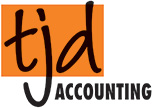Desktop Accounting
 A Comparative Analysis of MYOB, Reckon, Quickbooks and Xero
A Comparative Analysis of MYOB, Reckon, Quickbooks and Xero
There’s little doubt that desktop accounting has held an important place in the accounting industry over the last 10 to 15 years; however, just as the arrival of desktop accounting systems signaled the end for the beloved old “shoebox” accounting style, the new kids on the accounting block are now firmly rooted in cloud-based technologies. While it can take many years for tried and trusted methods to be completely replaced (even the shoebox still isn’t completely dead!), we are certainly anticipating 2014 being the year that cloud accounting takes a real hold on the market.
What makes the cloud so much better?
Cloud-based accounting systems have many advantages over the old desktop method, most notably the security and safety these systems offer a business’s data. When annual accounts are stored safely in the cloud, there is no worry about 12 months’ worth of data going up in smoke with a broken, stolen or fire-damaged laptop. Thanks to many cloud services’ advanced encryption and data protection technologies, data is infinitely more secure on the cloud than it could ever be on a local system or network.
Even better, the more advanced and nuanced cloud accounting software becomes, the more time and money it saves businesses at every turn. Bank transactions can be uploaded directly to the cloud; expenses, payments, payroll, sales and revenues from everyday business activity can all be instantly uploaded directly to your accounts.
With this kind of system in place, the need for teams of accountants and laborious manual inputting of data evaporates—and the savings begin to mount.
Which cloud accounting service is best?
The four big players on the market at present are undoubtedly Xero, MYOB, Reckon and Quicken.
MYOB is likely currently the most popular of the three simply because as a brand it has been around the longest; people are more familiar with it than the other packages. This does not mean that MYOB is the best solution for everyone switching to a new cloud service. The software can be quite tricky to learn and is certainly not as user-friendly as some of the alternatives. Having changed owners just last year, there is some question over the direction MYOB is heading. So accustomed to be the leaders of the pack, MYOB is now having to fiercely compete with its strongest rivals. MYOB’s launch of new online and mobile products in the coming months shows definite promise, but at the moment the jury is still out about MYOB’s future.
Reckon has long been viewed as one of the strongest players in the online accounting market, and their software is generally recognized to be more user-friendly and intuitive than the others. However, the big sticking point for Reckon is that after separating from its huge U.S. partner, Intuit Playbooks, Reckon can no longer use the Quicken name. This is a big blow to Reckon, and with Intuit Playbooks looking ready to use Quicken to make a play for Australia’s small and medium businesses, the landscape looks decidedly uncertain for these players.
Perhaps the most stable and upwardly mobile name in the cloud accounting arena at present is Xero. Xero is the most modern and slickly designed program; its software has been specifically created for cloud-based use. In addition, Xero made some aggressive moves in the market over the last 12 months; it recently claimed to have been taking on around 40 new accounts per day in the last quarter of 2013.
Overall, the future of online accounting is firmly with the cloud. While there are many options out there for the small and medium business, Xero has the edge over the rest of the market at the moment in terms of its modern design and its growing user base.
TJD Accounting Services
319 Keilor Road
Essendon
VIC 3040
9379 4040
